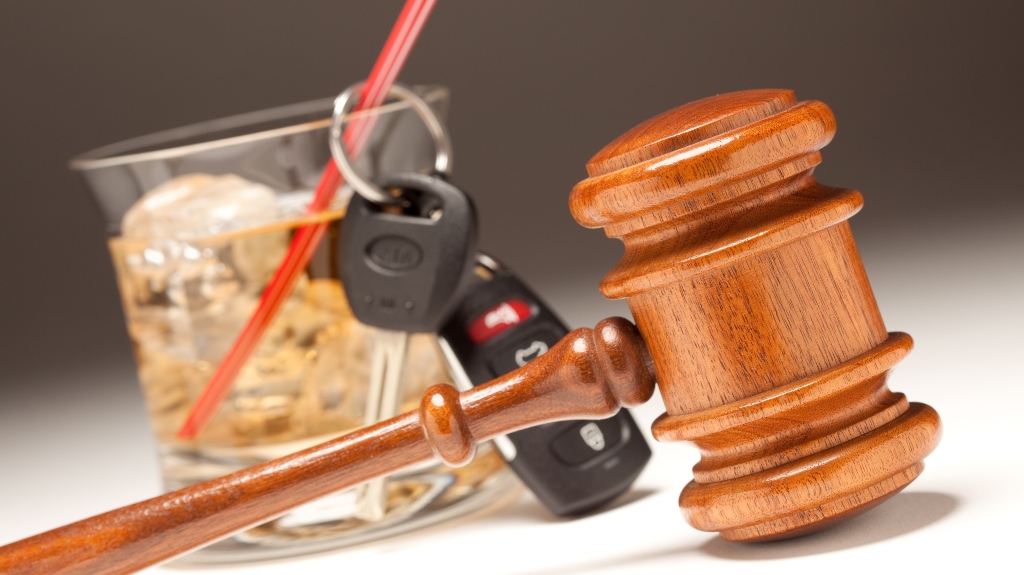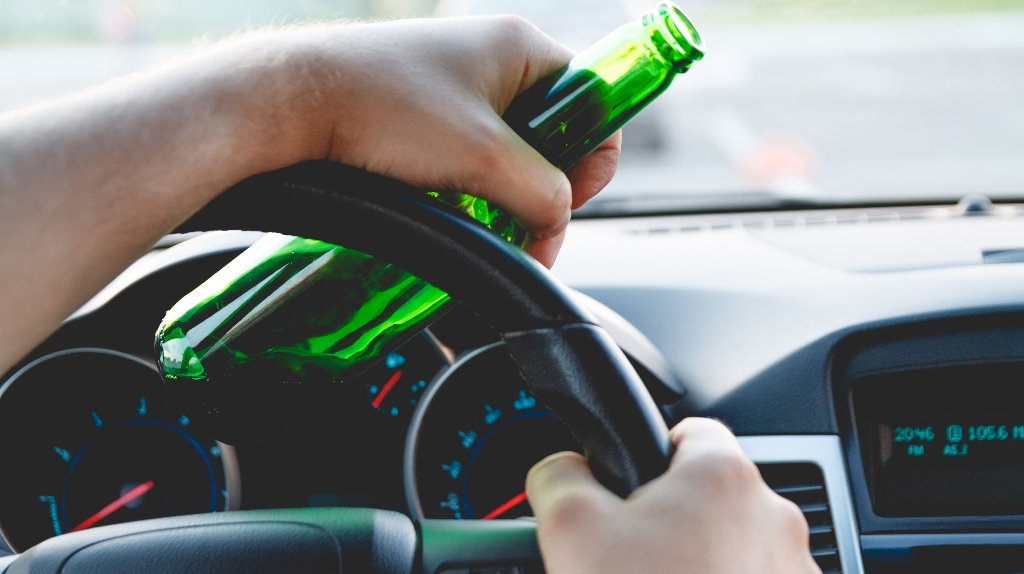OUI MANSLAUGHTER & MOTOR VEHICLE HOMICIDE
In Massachusetts, if you cause an accident that results in the death of another person, you may face criminal charges. There are several different types of charges, including OUI manslaughter and three levels of motor vehicle homicide. The type of charge and offense level will depend on the circumstances of your particular case. If you are faced with an OUI manslaughter or motor vehicle homicide charge, you are likely feeling scared and overwhelmed. Our attorneys understand what you are going through. We are here to not only fiercely defend you in court, but to guide you as counselors at law through these very difficult times. A case involving a death is incredibly serious and it is imperative that you have an experienced attorney to help you understand the charges, the potential consequences, and available defenses. Each case is different, and you need a lawyer who will thoroughly evaluate every aspect to determine your best defenses and obtain the most favorable outcome possible.
Manslaughter While Operating Under the Influence
The charge of manslaughter while operating under the influence — also known as OUI manslaughter — was established as part of Melanie’s Law. Melanie’s Law, enacted in October 2005, enhanced penalties for OUI offenders in Massachusetts. OUI Manslaughter is a felony charge that imposes severe penalties on offenders who cause the death of another person while operating a motor vehicle under the influence of alcohol or drugs. M.G.L. c. 265, § 13 1/2. This is not a charge to face alone. You need an experienced attorney to help you through this process.
Elements of OUI Manslaughter
In order to convict you of OUI manslaughter, the prosecution must prove the elements of both OUI and involuntary manslaughter. Commonwealth v. Guaman, 90 Mass. App. Ct. 36 (2016). Elements are the components that make up a crime. The prosecutor has the burden of presenting evidence for each component in order to convict you of the crime. If the prosecutor cannot prove any single component, you cannot be found guilty. Since the charge of OUI manslaughter combines the elements of what can be two separate crimes, there are many potential defenses and challenges available.
Operating Under the Influence
Operating under the influence (OUI) of alcohol or drugs is prohibited under G.L. c. 90, §24. The elements of OUI include:
- Operation of a motor vehicle;
- On a public way;
- While under the influence of alcohol or drugs.
The under the influence element can be difficult for the prosecution to prove, especially if there was no breath or blood test. Even if there was, there are ways to challenge the reliability of the chemical tests themselves. The lack of a chemical test removes the prosecution’s ability to try you based on under per se theory. Without a test, the prosecution is instead required to prove your impairment based on the observations of police officers. If the prosecution cannot prove the OUI, you cannot be convicted of OUI manslaughter. The attorneys at the Bernard Defense Team are at the forefront of OUI defense, with in-depth knowledge of the challenges and defenses available to help you fight this charge.
Manslaughter
In addition to proving all the elements of the OUI, the prosecution must also prove the elements of involuntary manslaughter beyond a reasonable doubt. The law defines manslaughter as “an unlawful killing unintentionally caused by wanton or reckless conduct.” Put another way, the elements of involuntary manslaughter require that you:
- Caused the death of another person;
- Intended the conduct that caused the death; and
- Conduct was wanton and reckless.
One thing that separates this offense from similar, lesser offenses is the fact that it requires wanton and reckless conduct. Wanton and reckless conduct is defined as conduct that “involves a high degree of likelihood that substantial harm will result to another.” Commonwealth v. Welansky, 316 Mass. 383, 399 (1944). Wanton and reckless conduct is intentional conduct. What is intended is the conduct itself, not the harm to another. It does not matter that you did not mean to hurt anyone, it only matters that you meant to act in a certain way that resulted in the death of the other person. Proving this intent is a significant burden for the prosecution. It is not enough to simply show that you were negligent in some way.
A determination of wanton and reckless conduct can be based on a subjective standard or an objective standard. The subjective standard is based on your actual knowledge, meaning you actually knew that what you were doing was dangerous as to create a risk of substantial harm to others and yet you chose to run that risk. The objective standard refers to what a reasonable person — the ordinary, everyday person — would have known to be dangerous under the circumstances. Even if you were not aware of the dangerousness of your conduct, if an ordinary person would have been aware, then your conduct may be found to be wanton and reckless. The fact that you had been drinking by itself is insufficient to demonstrate wanton and reckless conduct; however, it may be considered as a factor in the court’s determination. Commonwealth v. Dyer, 77 Mass. App. Ct. 850 (2010).
The prosecution must also show that your conduct caused the death of another person. Causation simply means that you set in motion a series of events that resulted in the death, and the death would not have occurred without your conduct. Commonwealth v. Carlson, 447 Mass. 79 (2006).
Massachusetts severely penalizes those convicted of OUI manslaughter. Penalties include:
- Minimum of 5 years to 20 years in prison; and
- Fines up to $25,000.
A felony conviction is serious, and can potentially impact your life for years if not for the duration. It is imperative that you have an attorney with the expertise to support you through the court process and defend you against all the components of an OUI manslaughter charge.
Listen to Atty Bernard when he gives the advice. His staff was great. Thank you, Joe, and keep up the good work.
Motor Vehicle Homicide
The charge of motor vehicle homicide differs from OUI manslaughter and may or may not result from a driver operating under the influence. G.L. c. 90, § 24G. The law provides three levels of this offense: felony motor vehicle homicide, misdemeanor motor vehicle homicide, and reckless motor vehicle homicide. Though similar, the elements for each charge vary, and the penalties differ in severity.
Felony Motor Vehicle Homicide
Felony motor vehicle homicide is a lesser offense than OUI manslaughter, but is still quite serious. G.L. c. 90, § 24G(a) criminalizes operation while under the influence of alcohol or drugs combined with negligent or reckless operation that results in the death of another person. To convict you of this offense, the prosecution must prove beyond a reasonable doubt that you:
- Operated a motor vehicle;
- On a public way;
- While under the influence of alcohol or drugs;
- Operated negligently or recklessly so that the lives or safety of the public might be endangered; and
- Caused death of another person.
Just as with OUI manslaughter, the prosecution must prove all the elements of OUI. If those elements are not proved, you cannot be convicted of felony motor vehicle homicide.
Although the statute uses the language of recklessness, the prosecution does not need to show that you were reckless. A showing of ordinary negligence is sufficient. You drive negligently when you fail to use due care, meaning that you drive in a way that a reasonable person would not under the same circumstances. Unlike with OUI manslaughter, no degree of intent is required.
Again, the prosecution must also show that your negligent conduct was the cause of the death. For charges involving negligence, it generally does not matter if the victim was also negligent in some way. This is called contributory negligence. However, if the victim’s conduct was the sole cause of the injury or death then you cannot be held responsible. Commonwealth v. Campbell, 394 Mass. 77 (1985).
G.L. c. 90, § 24G(a) states the penalties for a conviction of this felony offense include the following:
- Minimum of 1 year up to 15 years imprisonment; and
- Fines up to $5,000
By presenting a strong defense against any of the elements, it may be possible to obtain an acquittal or reduce the charges against you.
Misdemeanor Motor Vehicle Homicide
G.L. c. 90, § 24G(b) makes it a misdemeanor to operate a motor vehicle while under the influence of alcohol or drugs, or to operate a motor vehicle negligently, and cause the death of another person. The elements of misdemeanor motor vehicle homicide include:
- Operation of a motor vehicle;
- On a public way;
- While under the influence of alcohol or drugs or operated negligently so that the lives or safety of the public might be endangered; and
- Caused death of another person.
Unlike OUI manslaughter or felony motor vehicle homicide, the misdemeanor charge includes but does not require OUI. Instead, misdemeanor motor vehicle homicide by negligent operation and misdemeanor motor vehicle homicide by OUI are two separate offenses. The law allows you to be charged simply for negligent operation that results in a death. Additionally, a finding of OUI alone is sufficient for you to be convicted of misdemeanor motor vehicle homicide. Commonwealth v. Campbell, 394 Mass. 77 (1985).
Penalties for misdemeanor motor vehicle homicide include the following:
- 30 days up to 2 and ½ years in jail;
- Fines of $300-$3000;
- Or both.
Both the OUI and the negligent operation elements of the charge are highly defensible. Our attorneys have significant experience in trying both types of cases and know how to successfully challenge the prosecution’s case. It is possible to get the charges against you reduced, minimizing the negative consequences.
Reckless Homicide by Motor Vehicle
The third level of offense is reckless motor vehicle homicide. G.L. c. 90, § 24G(c) criminalizes reckless operation that results in the death of another person. This offense does not involve operating while under the influence. The elements include:
- Reckless Operation;
- On a public way;
- Resulting in the death of another.
G.L. c. 90, § 24G(c) states that a person is reckless when he or she “consciously disregards a substantial and unjustifiable risk that the lives or safety of the public might be endangered.” The need to demonstrate recklessness is a high burden for the prosecution. Our experienced attorneys will closely examine all the facts of your case to build the best possible defense.
Penalties for reckless homicide by motor vehicle include the following:
- Up to 5 years imprisonment;
- Fines up to $3,000;
- Or both.
As with the misdemeanor motor vehicle homicide, pretrial diversion may be an option depending on the facts of your case. The lawyers at the Bernard Defense Team will advocate on your behalf in order to obtain the most favorable outcome possible.
Driver’s License Implications
In addition to severe penalties including jail time and significant fines, a conviction of OUI manslaughter or motor vehicle homicide carries implications for your driver’s license. The RMV imposes harsh license suspensions for a conviction. There is a mandatory license suspension period of a minimum of 15 years up to a permanent, lifetime loss of license for OUI manslaughter convictions. You have the right to appeal a harsh suspension decision in superior court; however, even if the court reduces the suspension time it will not be for less than the 15 year minimum. For motor vehicle homicide offenses, the RMV will also impose a 15 year suspension for a first offense, and a lifetime suspension for any subsequent offense.
These harsh suspensions can have serious implications on your employment, family, and personal well-being. Defeating or minimizing the charges against you is the most effective way to minimize these potential impacts on your driving privileges. Our attorneys will work hard to obtain the best possible outcome for your case.
EXPERIENCED SKILLFUL LAWYERS TO DEFEND YOU AGAINST SERIOUS CHARGES
The lawyers at the Bernard Defense Team understand the fear, distress, and pressure overwhelming you due to an OUI manslaughter or motor vehicle homicide charge. The assistance of a skilled defense team can be the difference between conviction and lesser charges. We examine every aspect of our clients’ cases, including their arrests, field sobriety tests, and breath or blood tests, to create a comprehensive strategy to fight their serious charges. We devote a large portion of our practice to defending individuals charged with OUI-related offenses. You need to be represented by a legal professional who is knowledgeable in the law and will relentlessly fight for you. Do not wait another moment; retain the services of a dedicated OUI attorney immediately.



